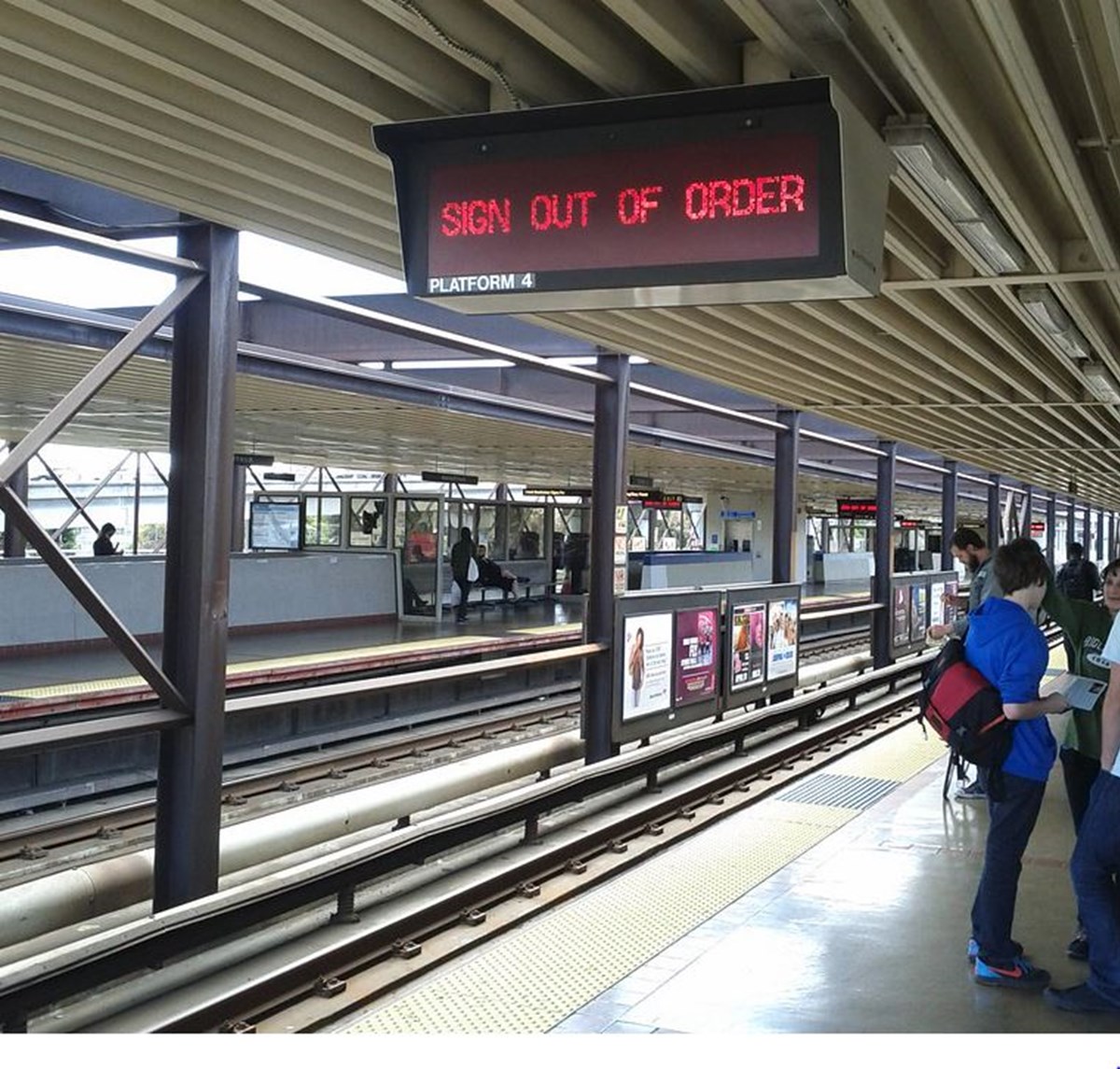The federal government spends $14 billion a year on subsidies for local rail and bus transit. This spending should be zeroed out in the next federal transportation bill because it induces cities to own and run monopoly transit systems that are unionized and mismanaged.
Federal transit aid has mainly covered capital costs, not operations and maintenance. That has encouraged cities to purchase rail systems with big up-front costs, rather than cheaper, safer, and more flexible bus systems.
A New York Times investigation of that city’s subway system found lavish spending on new projects at the same time as a shocking neglect of maintenance.
One consequence of the bias toward rail is that cities get stung by huge maintenance costs down the road. Rail systems across the nation are suffering from breakdowns, delays, and safety hazards. Subway systems in New York City, Washington, D.C., and Boston are in poor shape, yet those cities are induced by federal aid to keep expanding them.
A New York Times investigation of that city’s subway system found lavish spending on new projects at the same time as a shocking neglect of maintenance. Meanwhile, Washington’s Metro is building a boondoggle $5.8 billion rail line to Dulles airport, even though the system suffers from maintenance and safety failures, smoke in tunnels, crashes, and declining ridership.
It is a similar story with Boston’s rail system, as recently discussed in the Wall Street Journal:
Bostonians are losing patience with their transit system.
In June, a 50-year-old subway car left its track and smashed signaling equipment, just days after a trolley derailed underground. The resulting commuting chaos, along with a July 1 fare increase and a plan to limit summer service for repairs, combined to overshadow the aging system’s slow-moving rehabilitation.
The Massachusetts Bay Transportation Authority, a state agency that runs the system, estimates it will take about $10.1 billion and 13 more years to modernize it, with costs expected to rise as equipment ages.
… Nationwide, it would cost at least $100 billion to address the backlog of transit-system upgrades, said Paul Skoutelas, chief executive of the American Public Transportation Association, which represents transit agencies. “It’s difficult, once you go any number of years—and in some cases it’s decades of that underinvestment—it’s very difficult to dig your way out of that hole,” he said.
… The MBTA suffered widespread failures during a brutal winter in 2015, just as [Gov. Charlie] Baker, a Republican, took office. He found a system beset by neglect and financial problems, including an inability to spend available resources quickly enough. The Baker administration says the extended timeline for MBTA upgrades reflects the challenges in addressing long-running problems.
… “Digging out from decades of neglect doesn’t happen overnight, not on a system that must continue to operate every single day,” [Baker] said.
Why has there been “decades of neglect?” Why is there a $100 billion “backlog?” Why is the Boston system “beset by neglect and financial problems?” Why are all these transit systems so shoddy?
Hong Kong privatized its metro system in 2000, and the reform has been a big success.
Because they are unionized monopolies owned by governments, and there is little incentive for efficiency, innovation, and improvement. Federal subsidies encourage bad behavior and bad choices by states and cities.
The federal government should end subsidies and the states should privatize. Before the 1960s, most U.S. urban transit systems were private, and they should be private once again. Hong Kong privatized its metro system in 2000, and the reform has been a big success. Government transit has been a failure, so it is time to give entrepreneurs and markets a chance.

